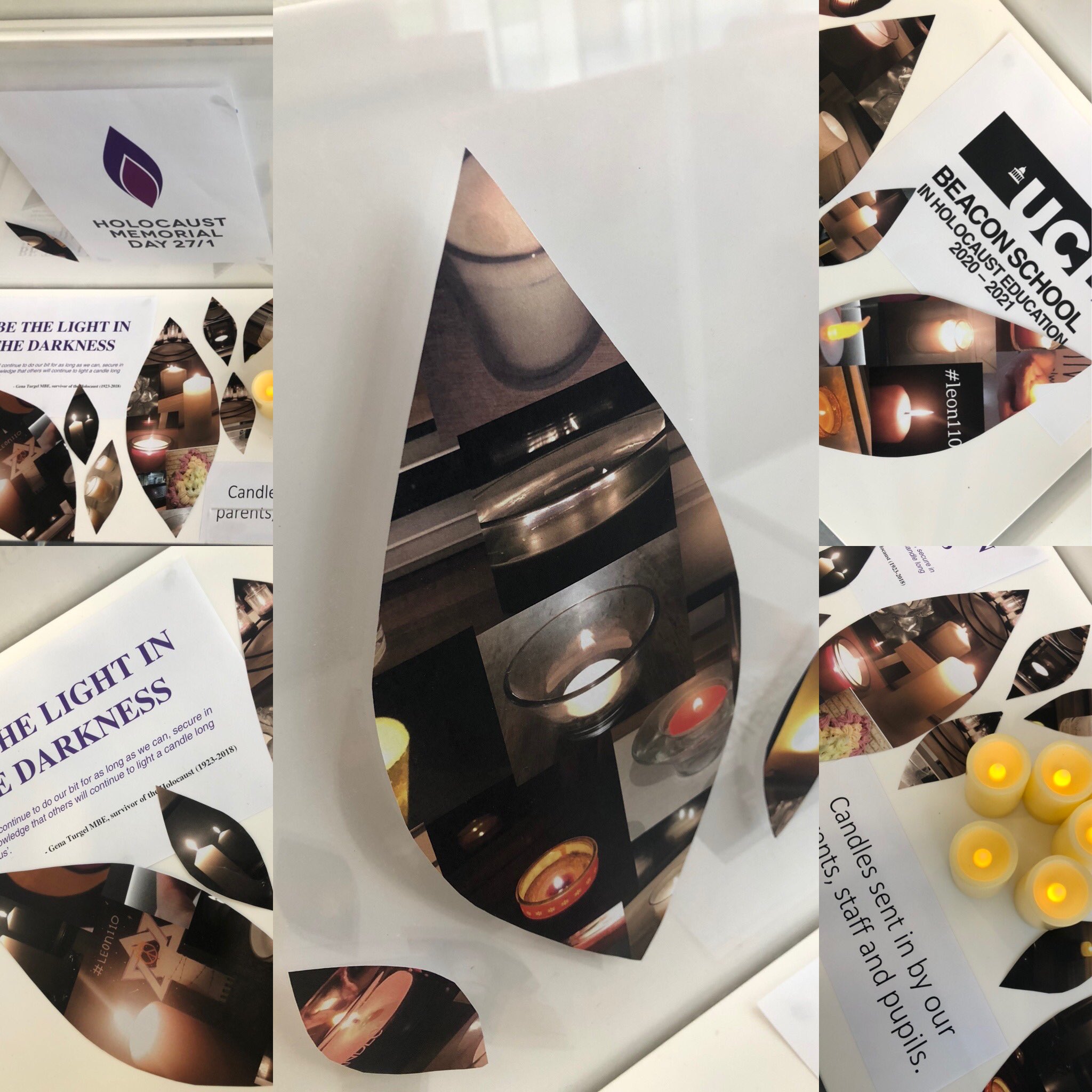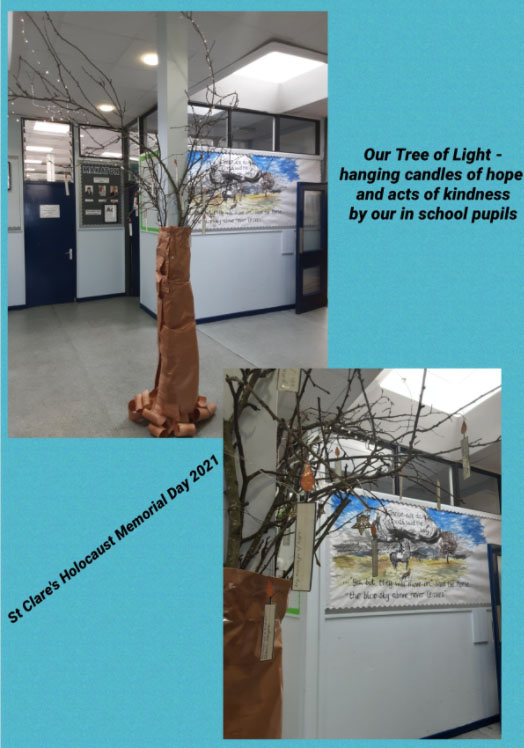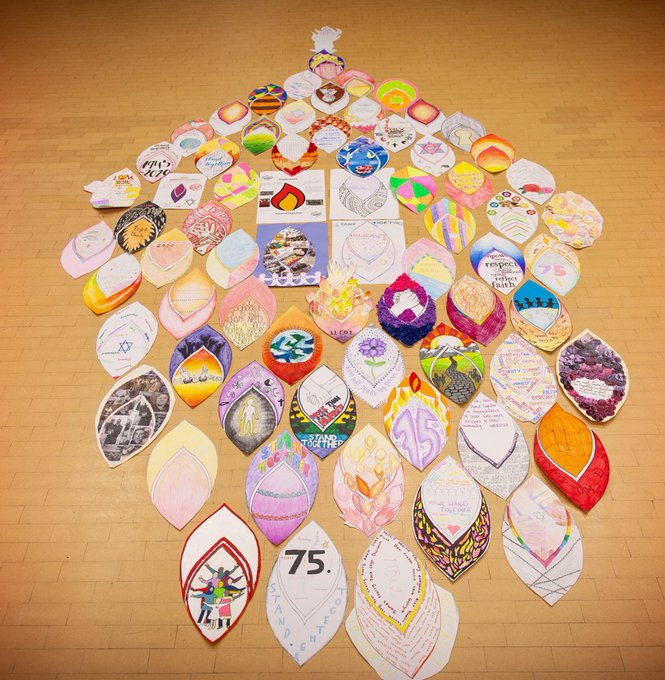HMDT guest blog: HMD 2022 – an opportunity for the whole school community
To mark the 10th anniversary of the Beacon Schools programme, the UCL Centre for Holocaust Education asked the schools for their ten ‘top tips’ to help schools to mark Holocaust Memorial Day (HMD) 2022.

The Beacon Schools programme was developed by the UCL Centre for Holocaust Education. Beacon Schools serve as dynamic hubs co-ordinating a network of local schools, helping them to develop confidence, proficiency and excellence in Holocaust teaching and learning.
Please note, this is an edited blog version of a longer resource – for more information and examples you can find the ‘long read’ version below.
1. Know the theme, plan early
The national theme is an invaluable tool for giving your HMD activities focus and coherence. At Moor End Academy, they say sharing materials with staff early is reassuring, especially for non-specialists.
2. Support all staff
It is important all staff know what HMD is, and how your school plans to mark it. At Falinge Park, staff briefings are used to explain their approach. If you wish to upskill your colleagues, encourage them to explore short, online courses – such as those produced by the UCL Centre for Holocaust Education, or download HMDT’s ‘Guidelines for teachers’.
3. Link to school values and local issues
Linking the theme to your school’s ethos and values makes it relevant to the school community. Opportunities like tutor time and assemblies make the links clear. Moor End Academy regard an assembly on the day as critical: ‘It launched the day and worked really well to explain the concept of HMD and what we wanted to achieve.’
4. Lead from the front
Make sure your leadership team is on board. George Croxford, CEO of the Royal Wootton Bassett Academy advises:
Overtly support HMD, to show the students and staff that the subject matter is important, that both from a curriculum and holistic perspective it’s valued in your schools. I truly feel marking HMD 2022 is a school leader’s moral and educational imperative, it contributes so much to a school community and its outcomes are so often so valuable and unexpected. Go for it!
5. Energise through creative projects
To help your students connect with HMD, lead projects to stimulate interest and galvanise activity. The #Leon111 initiative can inspire engagement and the Centre’s tutor time stimuli for KS3, 4 and 5 can help. HMD allows the opportunity for schools to explore genocides past and present. Beacon School teacher Andy Lawrence’s blog and short film explains how.
6. Be inclusive, creative and student-centred
Last year Hill Top Specialist Arts College in Gateshead engaged all their students, verbal and non-verbal, in marking HMD. Classes and students placed candles in windows at home and school, took pictures and made a collage. Whether in specialist or mainstream settings it is possible, indeed necessary, that all learners can access and engage in HMD. You can find resources for SEND students here.
7. Adopt a personal approach
The Holocaust is not easy history to learn about. To help young people, use personal stories to create points of access. Many schools have had survivors come in and speak to students, and HMDT have filmed and written testimony resources available.
8. Engage your parents, families and wider community
Last year Oakmoor School launched the school activities by informing and inviting families to engage, and alerted them to the live online HMD ceremony broadcast. They asked families to light a candle and send a photo. The school then made a collage of all the pictures of the candles.
9. Explore disciplinary links
At Royal Wootton Bassett Academy each department displays a Holocaust or genocide related story or artefact that links to the national theme and the subject area. This has encouraged cross-curricular thinking, creative engagement and been a real opportunity to raise whole school awareness.
10. Remain sensitive and aware
Teaching and learning about the Holocaust affects people in different ways. It is important to remain sensitive to this reality, and to be aware that traumatic history can intersect with people’s personal experiences. Consider ways in which you can support staff and students who may be impacted by HMD.
On 27 January, Beacon Schools and thousands of others across the country will come together to remember the Holocaust and consider its significance and meanings for today. Taking this one day to pause and engage with it is crucially important. But so too is considering the Holocaust education that students receive throughout the school year.
Our blogs highlight topics relevant to our work in Holocaust and genocide education and commemoration, including identity-based persecution today. We hear from a variety of guest contributors who provide a range of personal perspectives on issues relevant to them, including those who have experienced state-sponsored persecution and genocide. The views expressed are exclusively those of the author and do not necessarily represent the views of HMDT.


